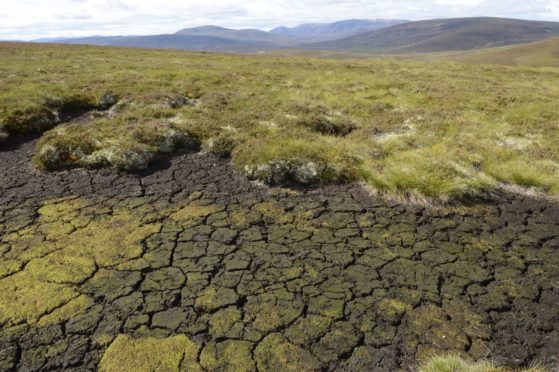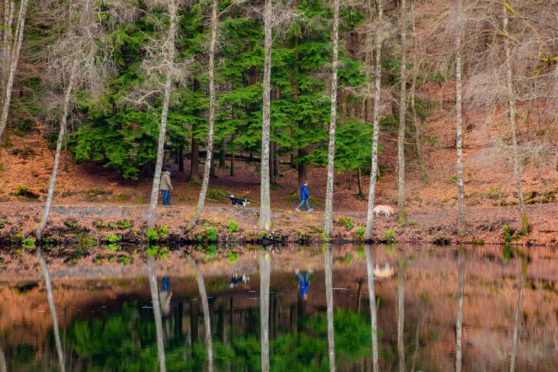Hundreds of nature jobs could be created in Tayside and Fife as part of a “green recovery” from Covid-19, say wildlife groups.
A coalition of leading charities have said their plans for more deer stalkers, farm advisers and peatland workers could help rebuild the local economy after the pandemic.
RSPB Scotland, the Scottish Wildlife Trust and WWF Scotland, claim 7,000 jobs could be created across Scotland.
Research conducted by environmental economist Matt Rayment suggests a total 4,000 direct posts could come from peatland restoration, native woodland expansion, deer control and expanding the Scottish Government’s existing Farm Advisory Service.
Indirect jobs could amont to 3,000, say the charities.
A lot of potential
The group also hopes to create a Scottish Nature Network to improve access to the natural environment, especially around towns and cities.
RSPB senior policy officer Isobel Mercer said the work shows the potential for the nature sector to deliver thousands of jobs over the next 10 years.
“The data has been created on how many jobs previous habitat restoration and land management projects have created,” she said.
“There is a lot of potential in the region.”
Lang Banks, WWF Scotland director, said: “Rural communities, particularly those dependent on hospitality and tourism income, have been hit hard this past year.
“As the Scottish Government rolls its economic recovery measures nature restoration must be a vital part of them.
“These are relatively quick ways to create and support much needed long-term jobs in rural areas, whilst also contributing to a green recovery.”
Regeneration plans
Restoring and protecting Scotland’s peatlands could create 770 direct and up to 770 indirect jobs over the next 10 years, according to the predictions. Highland Perthshire and the Angus Glens both contain peatland areas.
Restoring and expanding Scotland’s native woodlands could support a further 1,800 to 2,000 direct posts.
The group says Scotland needs 670 more deer stalkers, to support the regeneration of natural areas, as well as helping to reduce the number of road accidents and control the spread of ticks which carry Lyme disease.
Local authorities could appoint 100 extra workers to deliver a Scottish Nature Network, they say, while increasing the environmental advice available to farmers would create 460 new posts.
Support for more assistance
Stephen Young, head of policy at Scottish Land and Estates, gave the plans a cautious welcome.
He said: “People, jobs and nature are at the heart of sustaining thriving rural communities. So, it is important that as we respond to climate challenges that we do not lose sight of the tremendous benefits that traditional sectors such as farming, country sports, tourism and food and drink already provide to the nation.”
Good quality green jobs
A Scottish Government spokesperson said the recently announced £1.9 billion capital investment for 2021-22 would ensure the recovery from Covid-19 creates good quality, green jobs, adding: “The natural economy is a vital asset in mitigating greenhouse gas emissions, responding to climate change, ending biodiversity loss and creating the new, green employment opportunities of the future and we welcome this report.”


